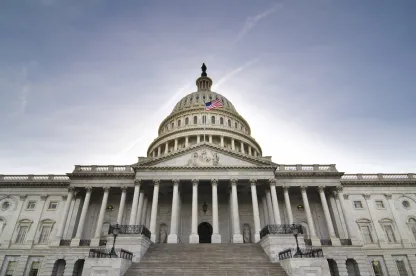GOVERNMENT FUNDING
This week, Congress is expected to pass a two-week extension to avoid a partial government shutdown. This means Congress will now have until December 21st to pass a partial spending bill and wrap up the 115th Congress. It still seems that the showdown over spending will come down to the border wall funding. It just may take us longer than we expected to get there. Most importantly, this two-week extension will now give policymakers time to wrap up a few extraneous legislative items. Funding for the FDA is relevant in the context of the spending bills currently awaiting action. Both the House and Senate have proposed increases in FDA budget, with money going towards the opioid crisis, various centers within the agency, including the Oncology Center of Excellence. While there’s something to be said for maximizing leverage heading into the weekend before Christmas, it’s possible that Congress passes certain spending bills while leaving others to be resolved (e.g., Homeland Security).
LAME DUCK HEALTH CARE BILLS
As of the moment, the odds seem against a bill to address the Medicare Part D doughnut hole. Does an additional two weeks create opportunities that were not previously there? Certainly, the odds are better than they would have been if everything was wrapped up this week. It also leaves open the door on a couple of health tax related provisions. There’s interest in delaying the health insurance tax, with a group of bipartisan senators warning that if unaddressed health insurance premiums would go up in 2020. While the Senate may push to address this in the final two weeks of lame duck, the House has expressed skepticism that it will get done. The same can be said for the medical device tax which has passed the House but is still awaiting Senate action. We watch for the EMPOWER Act and the ACE Kids Act as the clock ticks down. They have support generally but paying for anything in health care is a challenge. There are no simple, easy, bipartisan, non-controversial pay-fors out there growing on trees. While we remain guardedly optimistic, it still requires agreement to pay for them.



 />i
/>i

